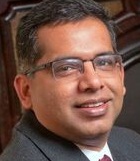
Mahatma Gandhi’s Vision of Satyagraha and Peace as a Spiritual Path
Oct 17-19, 2014
Call Us For More Information!
610-566-4507
Mohandas K. Gandhi lived experimentally, so he tells us in his autobiography, Experiments with Truth. He realized that to live with integrity, he had to bring satyagraha (truth- or soul-force) and ahimsa (doing no harm) to all of his relationships – personal and political. By living this truth, he could confront his political opponents nonviolently and without denying their humanity. We will explore how Gandhi embodied, however imperfectly, these ideals and reflect on what Gandhi has to teach us today. All are welcome – whether new to Gandhi or more familiar with his work.
Leader(s)
Mike Heller teaches literature and writing at Roanoke College. Among his publications are Mohandas K. Gandhi: The Last Eighteen Years and A Nonviolence and Social Change Source Book, which he edited with Sterling and Ruth Olmsted. A graduate of West Point, Mike described his own spiritual journey to Quakerism and nonviolent social change in his Pendle Hill pamphlet, From West Point to Quakerism (PHP #389). A member of Roanoke Friends Meeting (VA), Mike has published articles on the personal journal, autobiography, and the place of spirituality in education.
 Srikanth Mallavarapu also teaches in the English department at Roanoke College, where he and Mike co-coordinate the Peace and Justice Studies Program. Srikanth’s interest in the debates about development in the Indian context led to his critical engagement with Gandhian philosophy. He teaches courses on anti-colonial movements, such as the Indian independence movement led by Gandhi, and the struggle for civil rights in the U.S.
Srikanth Mallavarapu also teaches in the English department at Roanoke College, where he and Mike co-coordinate the Peace and Justice Studies Program. Srikanth’s interest in the debates about development in the Indian context led to his critical engagement with Gandhian philosophy. He teaches courses on anti-colonial movements, such as the Indian independence movement led by Gandhi, and the struggle for civil rights in the U.S.
Travel directions to Pendle Hill.
